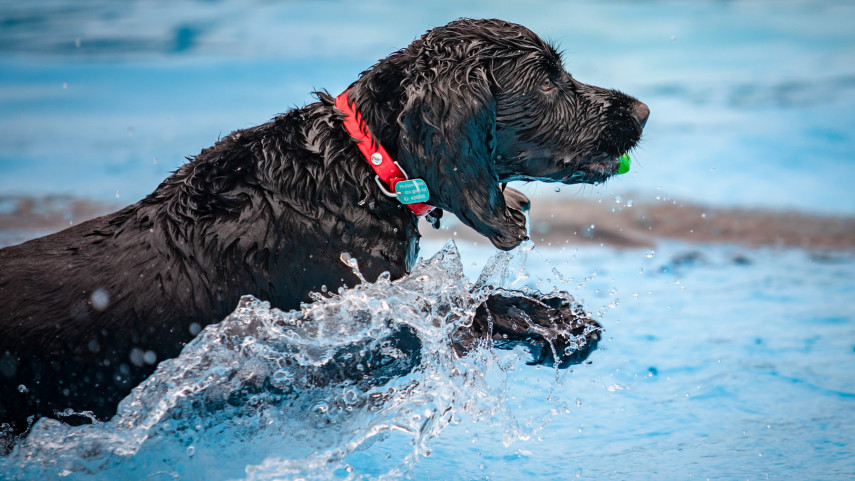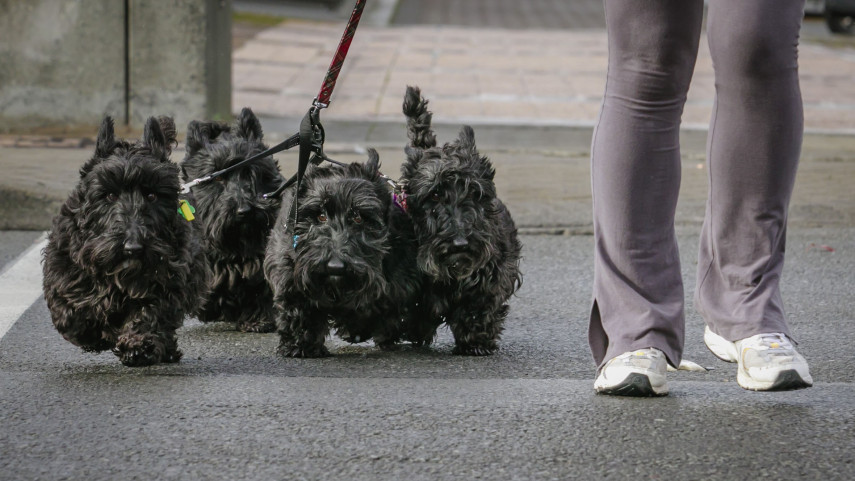The Council adopted a replacement dog control policy and bylaw on 3 September 2025. The Dog Control Policy 2025 and Dog Control Bylaw 2025 come into effect on 3 September 2025.
The Dog Control Bylaw 2025 [PDF, 328 KB] balances the recreational needs of dogs and their owners with appropriate controls to minimise the potential for harm, distress or nuisance that may be caused by dogs.
It regulates dog-related matters to enable the enforcement of the Christchurch City Council Dog Control Policy 2025. The objectives of the bylaw are to:
- Promote the responsible management of dogs in public places.
- Provide for the recreational needs of dogs and their owners.
- Minimise the potential for dogs to cause harm, distress or nuisance to the community, animals and wildlife.
The Dog Control Policy 2025 [PDF, 799 KB]outlines how the Christchurch City Council will address the requirements set out in the Dog Control Act 1996.
It balances regulatory controls to allow for the recreational needs of dogs and their owners with appropriate controls to minimise the danger, distress or nuisance that may be caused by dogs.
The policy is also designed as an educational tool to help encourage and facilitate good dog behaviour and good dog ownership. It should be read in conjunction with the Dog Control Bylaw 2025 and the Dog Control Act 1996.
Section 10A of the Dog Control Act 1996 requires that a territorial authority report on its dog control policies and practices each financial year.
View Section 10A reports:
- Section 10A report - Policy and practices 2024 to 2025 [PDF, 201 KB]
- Section 10A report - Policy and practices 2023 to 2024 [PDF, 45 KB]
- Section 10A report - Policy and practices 2022 to 2023 [PDF, 135 KB]
- Section 10A report - Policy and practices 2021 to 2022 [PDF, 285 KB]
- Section 10A report - Policy and practices 2020 to 2021 [PDF, 54 KB]
- Section 10A report - Policy and practices 2019 to 2020 [PDF, 48 KB]
- Section 10A report - Policy and practices 2018 to 2019 [PDF, 43 KB]
Map of leashed and prohibited dog control areas
This is a general representation and is not a legal description. The legal description is set out in the tables in the schedule to the Dog Control Policy 2025.
The map below shows the location-based rules from the policy. Different colours show different rules. Select an area on the map to find out more information.
If an area is shown with mixed rules, such as prohibited/leashed, the detail on where the rules apply and why will be in the pop-up.
Any area not shown with a mapped colour, or subject to one of the general rules, is an under-effective-control area. This means dogs are allowed off the leash as long as they are under effective control. For more on this and the general rules, see the information below the map.
Other areas or organisations, such as the Department of Conservation (DOC), may have dog restrictions in place to protect wildlife, or for other reasons. Note that dogs are prohibited on Quail Island / Ötamahua.
Refer to the DOC website(external link) or call your local DOC office for more details.
Rules about dogs on buses are made by Environment Canterbury, which runs Metro bus services.
Other areas where dogs need to be leashed or are prohibited
These areas are not shown on the map, but apply across the district:
Dogs must be leashed:
- On all roads, shared paths and footpaths.
- In all car parks.
- On all paths in parks and greenspace areas where dogs are allowed.
- On sports fields during games and practice sessions, within five metres of any marked playing area.
- On boat ramps and slipways.
- On wharves, jetties and boardwalks.
- In cemeteries and around memorial areas.
- In community gardens.
Dogs are prohibited:
- On and within one metre of all Council children's playgrounds.
- On and within one metre of all Council skateparks and pump tracks.
- At all Council swimming and paddling pools.
Any area not shown with a mapped colour, or subject to one of the general rules above, is an under-effective-control area. This means dogs are allowed off the leash, but the owner or person in charge of the dog is responsible for:
- Actively paying attention to the dog and what it is doing.
- Being close enough to quickly respond to any issues.
- Ensuring the dog remains responsive to commands, with prompt recall.
- Ensuring the dog does not create a nuisance to any other person, or to any stock, poultry, domestic animal, or protected wildlife.
If your dog is unable to consistently respond to commands, it must be leashed. Having your dog under effective control is as much about the safety of your dog as it is about the safety of others.
Dog parks and exercise areas
Prohibited
Prohibited/Leashed
Prohibited/Under effective control
Prohibited/Leashed/Under effective control
Leashed
Leashed/Under effective control
Summer Beach Prohibition
Related news

Be mindful of your pooch over summer
Dog owners are being reminded to take care of their furry friends and others while enjoying the outdoors over the summer months.
18 Dec 2025
Beat the heat with your pooch
Pet owners are being reminded to take the heat off their animals over the warmer months.
26 Nov 2025
Rules change for Christchurch dogs and owners
People with dogs have new rules to get familiar with across Christchurch and Banks Peninsula.
3 Nov 2025